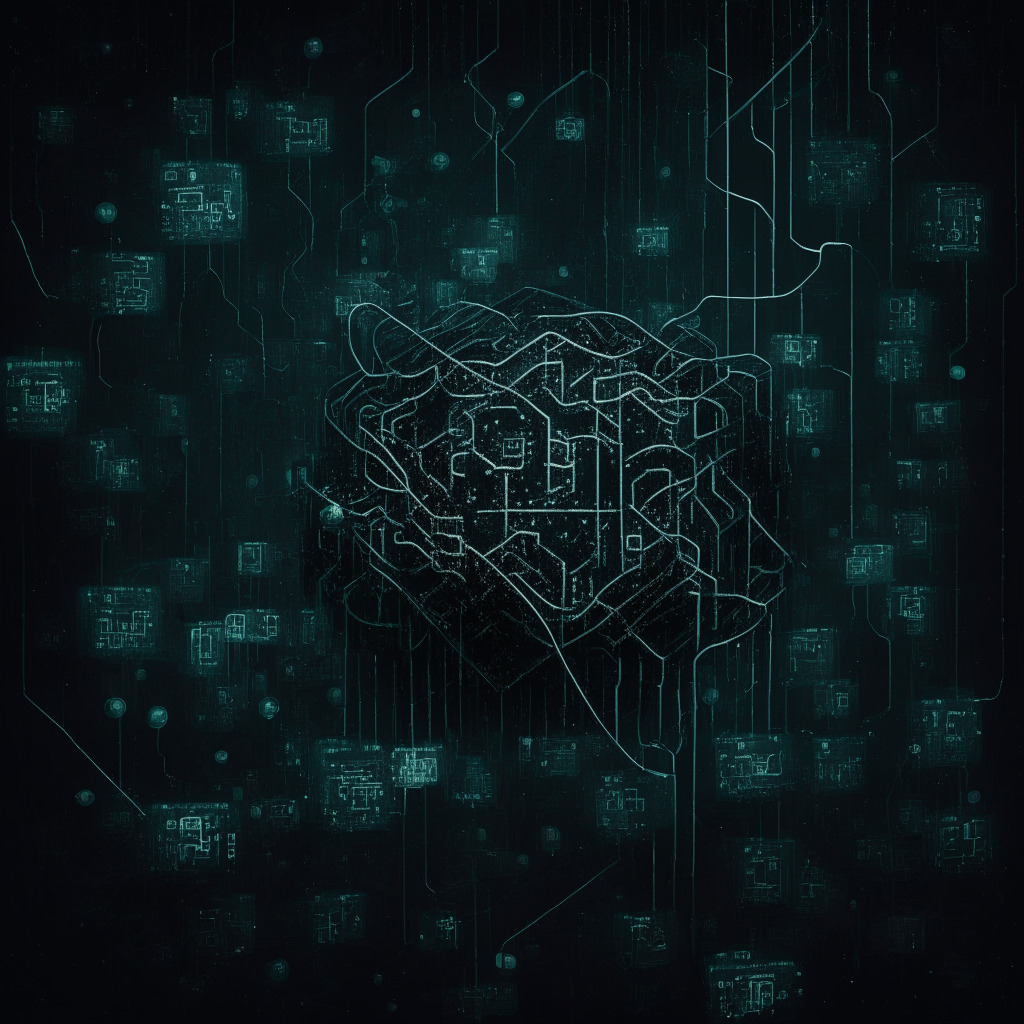The well-reputed decentralized oracle network, Chainlink, has recently come under skeptical eyes due to a silent adjustment made on its multi-signature wallet. Noticed by vigilant users and the crypto researcher, Chris Blec, the required number of signatures for authorizing transactions was quietly changed from 4-of-9 to 4-of-8. This meant that one wallet address was taken out of the multi-signature wallet without a peep from Chainlink’s authorities.
Blec and others from the distantly observant crypto community were quick to express their apprehensions. In response, a Chainlink spokesman clarified the situation, stating the modification was part of a regular signer rotation process. The tweaks were part of a strategy revolving around the reliable operation of Chainlink services while upkeeping the usual security thresholds.
However, this clarification did not clear the mist. Blec, a known critic of Chainlink, believes that if Chainlink’s signers were to turn rogue, it could potentially obliterate the entire DeFi ecosystem instantly. The decentralization risk associated with Chainlink isn’t a standalone issue as it also extends to other main players in the DeFi arena, such as Aave and MakerDAO, who lean heavily on Chainlink’s oracles for price data. It is interesting to note here that despite such intense criticism, the native LINK token of Chainlink gained nearly 20% over the last month.
This episode subtly points towards the unresolved dilemma in the blockchain world; While utmost transparency is the most celebrated quality of blockchain-powered systems, at times it can also spur issues related to trust and safety. Skepticism is raised when alterations are made without prior announcements; however, clarification from authentic sources does not completely exterminate the seed of doubt.
In a broader context, this event bleeds into the discussion on the double-edged sword that is decentralization. On one side, it provides every participant equal power and control, but on the other hand, it encourages the concerns related to the potential misuse of this power. Where the ability to go “rogue” remains within reach, the trust factor is continually tested in the ever-evolving world of blockchain technology. It ultimately trails back to the question that whether the trade-off between absolute decentralization and absolute security can ever reach equilibrium, and if yes, how?
Source: Cointelegraph




